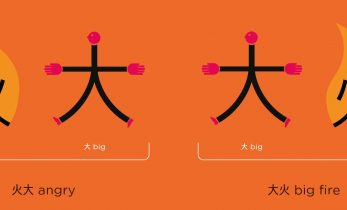Greater than 3 minutes, my friend!
Resilience tips for translators
Last week I started writing again in English and I was actually inspired by you guys in The Open Mic. Always up to date, full of work, very successful translators. Then I went on doing my job here in my tiny office and I asked myself, where is Clarisa? I mean, where is the translator who once wanted to create a new Association for translators in her city? Where is that woman that loved her profession, who loved and craved translating?
It was hard, but here I am. I really did my best to keep my career growing in spite of working in other stuff that brought in some revenue to my house and helped with raising my kids. In 2014, I decided to start a postgraduate course in scientific and technical translation and last year, in October, I quit my job and opened a didactic gift shop of my own. I didn’t care if I had to translate between wood toys and cloth books, I just wanted to become an independent translator.
It was then that I had more time for promoting myself, looking for new tools, reading translation blogs and books, searching for new projects and writing about being a freelance mom. Two months ago or so, I started reading a book about resilience and I also wrote about this in my Freelance Mom Blog.
Resilience is a new word in Spanish, but psychologists and psychiatrists know it very well. According to neuropsychologists, resilience is not a personality trait and you are not born resilient. Actually, resilience is an attitude towards life, it is the way of facing and going through tough situations, and it always teaches you something, makes you grow spiritually and encourages you to keep trying until you overcome whatever you are going through at the moment.
Psychiatrist Rafaela Santos in her book Levantarse y luchar (Stand up and Fight) describes resilience as “the capacity we all have -and that we can develop-  for coping difficulties in a constructive way and, in this sense, create resources that will allow us be productive in spite of having suffered a traumatic process.”[1] In this case, we may consider the traumatic process as a frustrating period in which you can’t achieve your professional goals or the feeling that you are not ready for practicing your profession independently.
for coping difficulties in a constructive way and, in this sense, create resources that will allow us be productive in spite of having suffered a traumatic process.”[1] In this case, we may consider the traumatic process as a frustrating period in which you can’t achieve your professional goals or the feeling that you are not ready for practicing your profession independently.
However, why is it important that we develop resilience? Well, the thing is that resilience also leads you to happiness according to Dr. Amit Sood from Mayo Clinic.[2] So, I combined what I learned from Santos’ book with Dr. Sood’s Handbook for Happiness: A Four-Step Plan for Resilient Living and I listed some points that helped me personally in my career, and I hope they also help yours.
Positive mind, positive life. This is the basis for being a resilient translator. When you wake up, be grateful for your career, and also, be kind to other translators at any time. You belong to a professional world, so your job and your experience may be an inspiration for your colleagues.
Connect your mind and body. If you think your career is not what you expected it to be, reading, exercise, music, art, prayer, meditation and yoga will help you find true calm. Let me remind you that by changing the way you feel you can change the way you think.
Boost your “influence area”. Try to concentrate on what you can control, which is what you can do to improve your career. For instance, think about attending the next conference in your country or starting a new course, publishing your webpage, writing or creating a blog for translators, etc. It is never too late to redirect your career.
Be flexible. If you want to enjoy what you do, you must learn to live without being rash and without taking life too seriously. Besides, you may plan your career and everything may happen exactly in the way you have imagined, but even life doesn’t work this way. In the end, it all comes down to knowing how to win or lose.
Force yourself out of your comfort zone. Learn a new language, move to another city or country, start your own business. This is how you’ll start living your life from a fresh perspective and always adding new experiences and lessons. Einstein used to say, “if you want different results, do not do the same things.”
Photo: www.mequilibrium.com
[1] Page 21.
[2] http://www.dailymail.co.uk/sciencetech/article-3116340/Have-finally-unlocked-secret-happiness-Scientists-reveal-four-simple-steps-banish-blues.html#ixzz42GAXlzLA





Thanks for sharing your story, Clarisa. I am currently going through a big process with many changes and is nice to read this kind of things along the way.
Hi Paula,
Life is a series of ups and downs, when we accept this, everything becomes clear and simple to understand and keep going.
Don’t give up!
Hi Clarisa, thank you for exposing such deep mneditations in a fresh and lively way. It has been a rewarding reading, thank you!
Thank you Silvia! It’s been a challenge, but I’m catching up with writing in English again. It feels good. 🙂
Hello, Clarisa! Thank you for sharing your thoughts. When I left my permanent and well-paid job last year to pursue my dream and become a freelancer, I had anxiety attacks for some time as I doubted if I was really able to succeed. I am thinking now that this thing, resilience, helped me a lot to become happy and sure of myself. I will definitely have a look at your blog, because I am a freelance mom myself 🙂 Thank you again for this nice story!
Hi, Natalia! I’m so glad that you decided to become a freelance mom. It’s not easy, but we all have a way to success. I wish you find the patience freelancing requires and that you put all your efforts into it!
Thanks for introducing the concept. I would really love if you share your blog link with us. The open mic has also encouraged me to write my first article. The sense of supporting community is really great. I hope to read more of your work. Best of luck.
Hi, Fadwa! It’s been a long time since I last logged in here! My blog link is link to clarisapereira.com.ar and my bilingual account on Facebook is @mamaindependientear and on Instagram @mamasinds. Stay in touch!